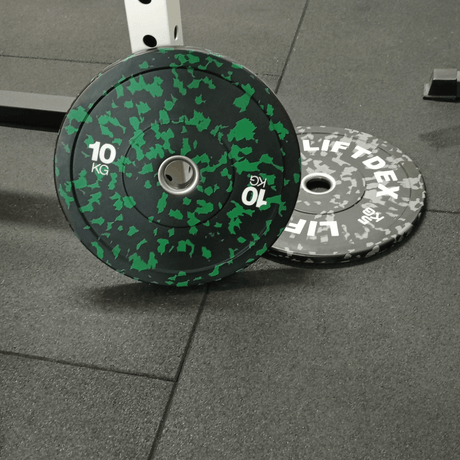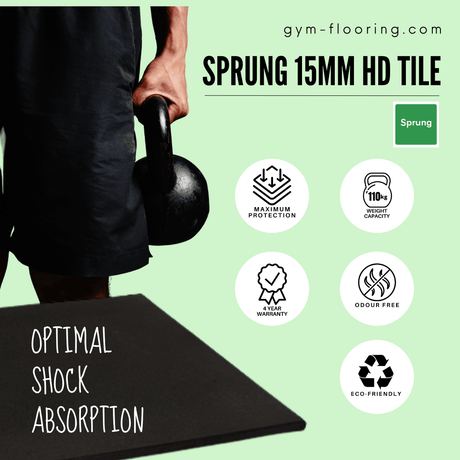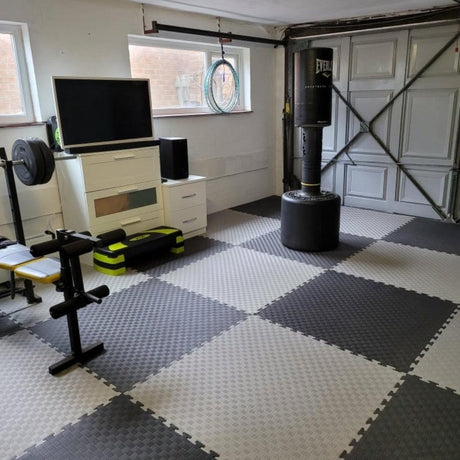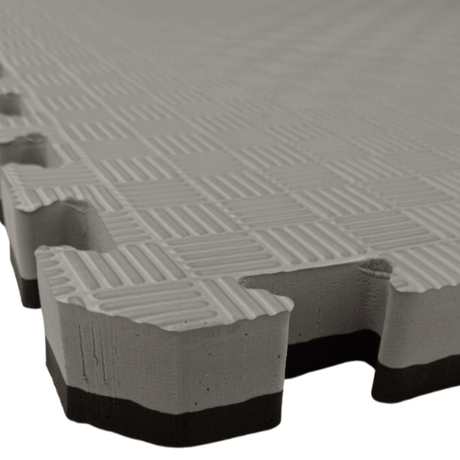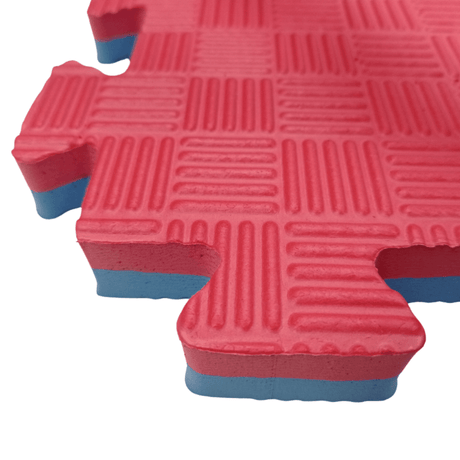
Functional training has gained significant popularity in recent years due to its focus on movements that mimic real-life activities, improving strength, flexibility, and overall fitness. To further enhance the effectiveness of functional training, gym floor markings such as dots, lines, ladders, compasses, and grids are utilised to create structured environments for targeted exercises. In this blog post, we will explore the various types of gym floor markings and their application in facilitating specific functional movements.
Dots
Gym floor markings in the form of dots serve as valuable reference points for athletes and fitness enthusiasts. They are strategically placed to guide footwork, improve balance, and enhance agility. Dots can be arranged in a linear pattern for lateral movements, or in a grid-like configuration to promote multidirectional agility exercises. They are particularly useful for drills involving quick changes in direction, such as shuttle runs, lateral shuffles, and speed ladder drills.
Line Markings
Lines on the gym floor offer visual cues and help establish proper alignment and body positioning during functional exercises. Straight lines can be utilised for exercises like lunges, squats, and step-ups, ensuring the feet are positioned correctly and enhancing stability. L-shaped lines can aid in performing proper deadlifts, kettlebell swings, and other hip-hinge movements, reinforcing the correct hip and knee alignment. Lined tracks such as speed lanes are excellent for creating dedicated conditioning and agility zones.

Ladders
Ladder markings on the gym flooring or a ready-made sprint track provide a versatile tool for improving footwork, coordination, and agility. These ladder-like markings can be used to create a range of exercises, including ladder drills, where individuals step, jump, or hop through the rungs in various patterns. Ladder drills enhance quickness, coordination, and lower-body strength, making them ideal for sports that require rapid changes in direction, such as soccer, basketball, and tennis.

Compass
Compass markings consist of directional arrows or compass rose patterns that aid in movement orientation. They are particularly useful for exercises that involve rotational movements and change of direction. The compass markings provide a reference for athletes to adjust their positioning, ensuring proper alignment and reducing the risk of injury during exercises like medicine ball throws, rotational lunges, and woodchoppers.
Grids
Grid markings on the gym floor create a segmented area that allows for precise movement and positioning. Grids and customised gym sled tracks are commonly used in activities like plyometrics, calisthenics, and agility training. They provide athletes with defined spaces to perform exercises like box jumps, burpees, and bear crawls, encouraging controlled and efficient movement. Grid markings also aid in measuring progress and tracking improvements in speed, accuracy, and coordination.

Conclusion
Functional gym floor markings such as dots, lines, ladders, compasses, and grids provide valuable visual cues and structured environments to enhance functional training sessions. These markings facilitate proper alignment, footwork, agility, and coordination, thereby maximising the benefits of functional movements. Whether you are a professional athlete, fitness enthusiast, or simply seeking an engaging workout routine, incorporating these markings into your training can elevate your performance and improve overall fitness.
Remember, functional training is all about movements that translate to real-life activities, and the thoughtful integration of gym floor markings adds an element of structure and precision to your workouts, unlocking your full potential in the pursuit of a healthier, more functional lifestyle.





